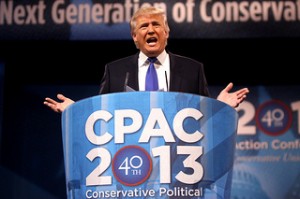Why are so many Washington officials obsessed with budget deficits? And why are they so willing to entertain big cuts to social programs such as Social Security, Medicare, and education, while being reluctant or outright unwilling to increase taxes on the highest income earners? The answer cannot be that most Americans want these choices. Survey after survey shows that large majorities support asking the wealthiest to pay more in taxes and want to maintain or increase spending on Social Security and federal health and education programs.
A possible answer to where budget hawks get energy and inspiration comes from the first systematic survey social scientists have managed to do of the political attitudes of the wealthiest one percent of Americans. Working with a team of scholars from several disciplines, I am conducting a study called the “Survey of Economically Successful Americans and the Common Good.” Most national surveys include only a tiny number of very wealthy citizens, but we used additional data sources to identify a larger sample of wealthy individuals living in the greater Chicago metropolitan area. Further research would be needed to explore attitudes among the very wealthy living everywhere in the United States. But our findings are highly suggestive of what would be found in a nationwide study. For the first time, we are able to pinpoint issues on which the very wealthiest agree or disagree with other Americans.
On Key Budget Questions, the Wealthy Have Distinctive Priorities
The wealthy respondents to our survey expressed great concern about budget deficits:
- Fully 87% called deficits a “very important problem” for the United States, more than chose unemployment, education or anything else on a list of eleven national challenges.
- On an open-ended question asking respondents to name the most important problem facing the country, a hefty 32% of the wealthy mentioned budget deficits or excessive government spending, far more than cited any other problem.
- Only 11% of the wealthy listed unemployment or education as America’s top problem.
- Wealthy respondents tilted toward cutting back – rather than expanding – federal government spending on Social Security and health care.
Disagreements on Jobs and Income Supports
Most wealthy respondents to our survey opposed a wide range of job and income policies that majorities of ordinary Americans favor. Our respondents were against setting the minimum wage above the poverty line; providing a decent standard of living for the unemployed; increasing the earned income tax credit; and having government provide jobs for everyone able and willing to work who cannot find private employment.
Likewise, the wealthy opposed – while most Americans favor – providing health insurance financed by tax money; spending “whatever is necessary” to ensure that all children can attend good public schools; making sure that everyone who wants to can go to college; and investing more in worker retraining and education to help workers adapt to changes in the economy.
The general American public favors more regulation of big corporations, but our wealthy respondents tend not to favor this idea. Most Americans favor using corporate income taxes “a lot” to get revenue for government programs, but most of the wealthy do not favor this. On the somewhat more contentiously-worded question of whether governments should “redistribute” wealth with heavy taxes on the rich, 52% of all Americans favor this, but unsurprisingly a large majority of the wealthy are opposed.
Are Policymakers Especially Responsive to the Wealthy?
Our data do not prove that the wealthy actually cause unpopular policy actions. But our study points in the same direction as recent research by Martin Gilens and his associates, showing that the actions of government align more closely with the preferences of affluent Americans than with the preferences of middle and lower-income citizens. Like previous studies, we also find that the wealthy are unusually politically active.

- Two thirds of the wealthy respondents to our survey had contributed money – an average of $4,633 – in the most recent presidential election. Remarkably, more than one of every five of our respondents had helped to solicit, or “bundle,” contributions from other affluent political donors.
- Within the past six months, about half had initiated contact with at least one Senator or House member; and many had contacted members of the White House staff, other executive branch officials, or officials at regulatory agencies.
- Judging by respondents’ accounts of what they talked about with officials, some 44% of these contacts concerned matters of rather narrow economic self-interest.
Of course, the mere fact that the wealthy and other citizens disagree does not prove that the general public is right. To make serious judgments, we would need to consider who has better information and whether different classes are more alert to tax costs or spending benefits. At minimum, however, our findings suggest that there are reasons to worry that U.S. policy may not respond fully and democratically to the needs and values of the majority of Americans. The very wealthy have different priorities, and they may be the ones who set the agenda in ongoing debates about taxes, social programs, and federal budget shortfalls.

 Research to Improve Policy: The Scholars Strategy Network seeks to improve public policy and strengthen democracy by organizing scholars working in America's colleges and universities. SSN's founding director is Theda Skocpol, Victor S. Thomas Professor of Government and Sociology at Harvard University.
Research to Improve Policy: The Scholars Strategy Network seeks to improve public policy and strengthen democracy by organizing scholars working in America's colleges and universities. SSN's founding director is Theda Skocpol, Victor S. Thomas Professor of Government and Sociology at Harvard University.